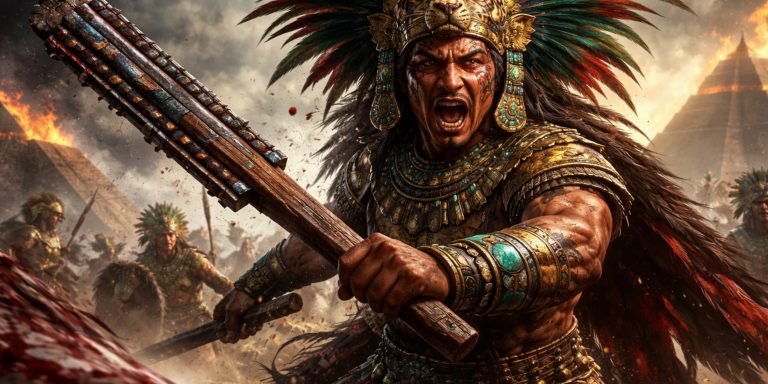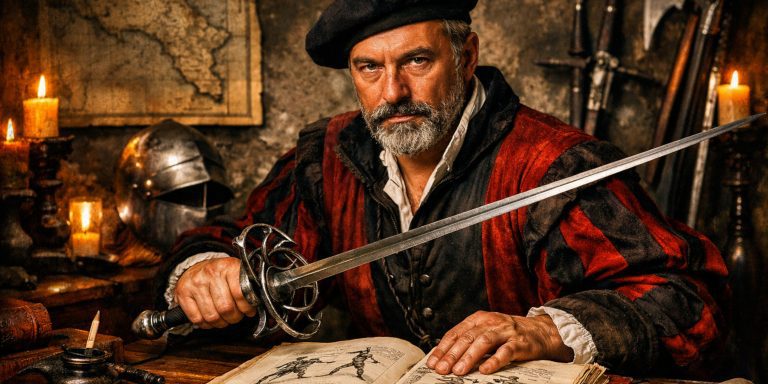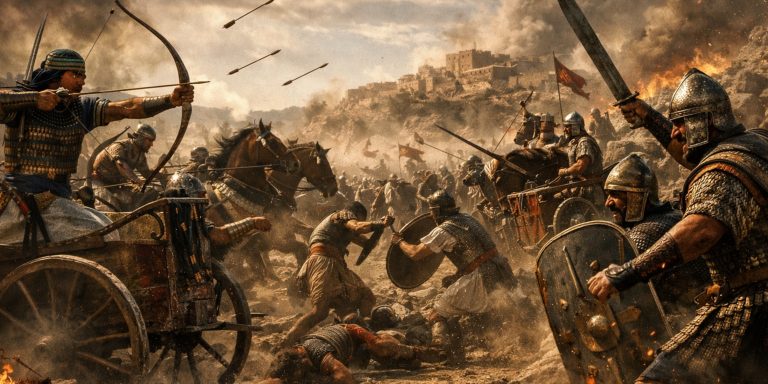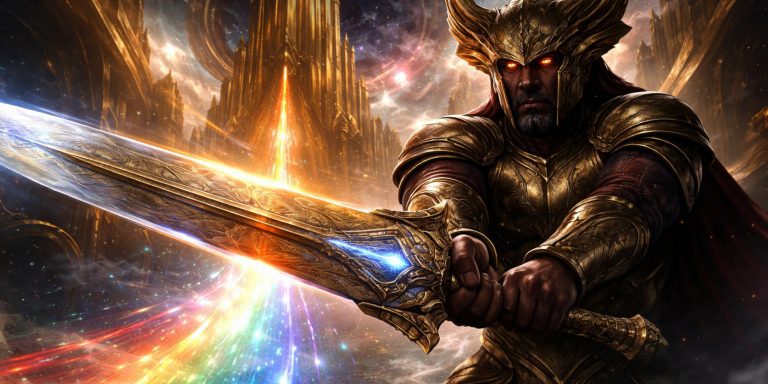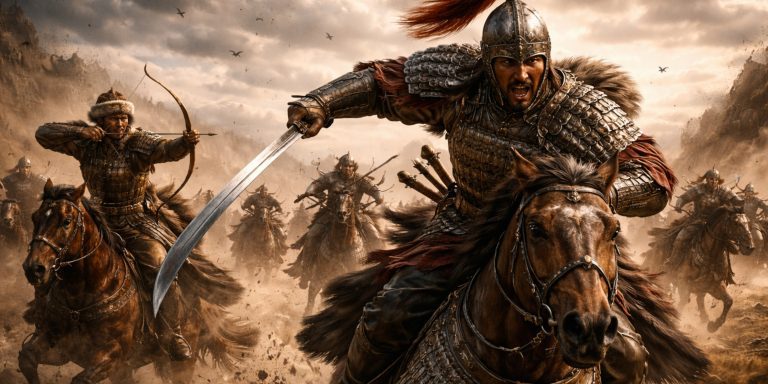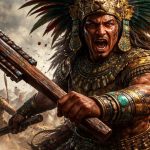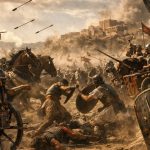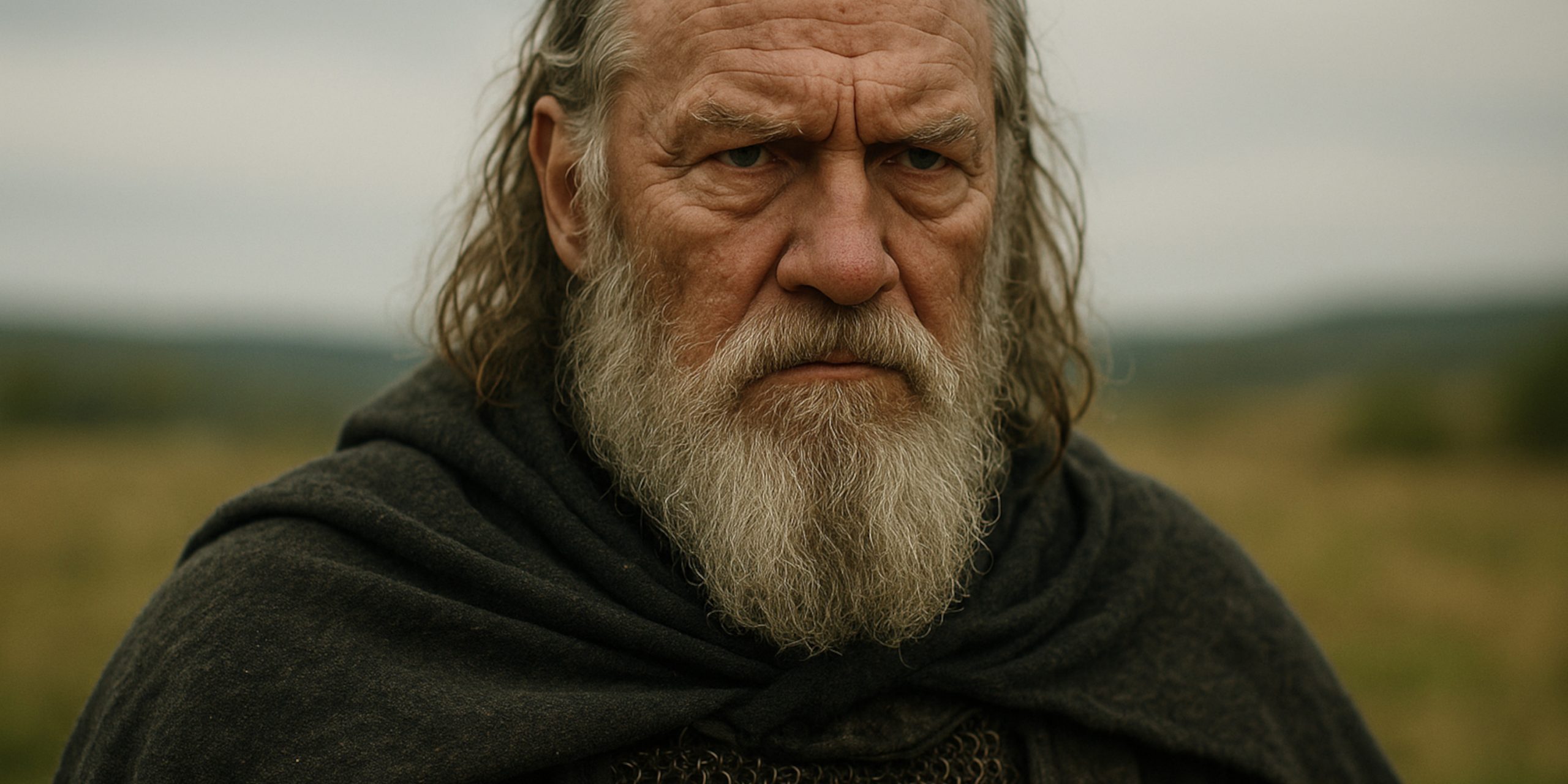
Egill Skallagrímsson was a Viking warrior, poet and farmer who lived in Iceland during the tenth century. He is remembered both for his skill in battle and his remarkable poetry, preserved in the Egils saga Skallagrímssonar. The saga, written in the thirteenth century, presents him as a complex figure: violent and unruly, yet capable of deep thought and lyrical expression.
Early Life
Egill was born around 910 in Iceland, the son of Skallagrím Kveldúlfsson, a settler of Norwegian origin. The saga describes him as a precocious child who showed a gift for verse at the age of three. His temperament was fierce from an early age, and tales of his youth already reveal a man drawn to conflict.
Warrior and Traveller
Egill’s reputation grew through his raids and service as a Viking warrior. He fought in England, raiding along the coast and serving under King Athelstan. He is said to have fought at the Battle of Brunanburh in 937, one of the most decisive clashes of the early medieval period, where he won both wealth and honour.
His journeys also took him to Norway, where he became entangled in disputes with the royal family. These feuds marked much of his life, as he resisted royal authority and sought vengeance for slights and betrayals.
Poet of Power
Egill was not only a warrior but also one of the greatest poets of the Viking Age. His works belong to the tradition of skaldic poetry, known for its strict metre and kennings. His most famous poems include:
- Sonatorrek: A lament for the death of his sons, regarded as one of the most moving poems in Old Norse literature.
- Höfuðlausn: A poem composed to save his life after being captured by King Eirik Bloodaxe. Its artistry persuaded the king to spare him.
These verses combine themes of fate, family loyalty and the hardship of human life, showcasing the depth of his character beyond the battlefield.
Family and Feuds
Egill married Ásgerðr, the daughter of Björn Brynjólfsson, and together they had several children. His family ties often brought him into alliances and conflicts. The saga tells of bitter feuds with Norwegian royalty, especially King Eirik Bloodaxe and Queen Gunnhild, who sought his death on more than one occasion.
Later Years
In his later life Egill settled in Iceland, managing his farm at Borg. Though age diminished his strength, he remained a man of presence and authority. His poetry from this period reflects loss and reflection, shaped by the deaths of his sons and the passing of his friends.
Battles and Conflicts
| Battle / Feud | Date (approx.) | Location | Opponents | Egill’s Role | Outcome |
|---|---|---|---|---|---|
| Battle of Brunanburh | 937 | Northern England | Combined Norse, Scots and Britons vs. King Athelstan | Fought as an ally of King Athelstan | Victory for Athelstan, strengthening English rule |
| Feud with Bárðr of Atley | 920s–930s | Norway | Bárðr, retainer of King Eirik Bloodaxe | Killed Bárðr in a quarrel | Sparked ongoing feud with Norwegian royalty |
| Skirmishes with King Eirik Bloodaxe | 930s–940s | Norway and England | King Eirik and Queen Gunnhild’s retainers | Survived ambushes and assassination attempts | Maintained independence, eventually fled to Iceland |
| Feud with Atli the Short | c. 950 | Iceland | Atli the Short | Egill killed Atli after a property dispute | Strengthened Egill’s reputation for violence |
Travels and Journeys
| Destination | Purpose | Activities | Notable Events |
|---|---|---|---|
| England | Service and raiding | Fought under King Athelstan, raided coasts | Battle of Brunanburh (937) |
| Norway | Family ties and disputes | Claimed inheritance, pursued feuds | Conflict with King Eirik Bloodaxe and Queen Gunnhild |
| Iceland | Settlement | Managed farm at Borg, wrote poetry | Later life and burial site |
| Scandinavia (general) | Viking raiding | Sea voyages and raids | Earned wealth and renown |
Key Poems
| Poem | Date (approx.) | Occasion | Themes | Significance |
|---|---|---|---|---|
| Höfuðlausn | 930s | Composed before King Eirik Bloodaxe to save his life | Praise, flattery, survival | Saved him from execution; shows wit under pressure |
| Sonatorrek | c. 960s | After the deaths of his sons | Grief, fate, family | One of the most moving laments in Old Norse literature |
| Arinbjarnarkviða | 10th century | In honour of his friend Arinbjörn | Loyalty, friendship, generosity | Celebrates bonds of trust and kinship |
The Seven Swords Takeaway
Egill Skallagrímsson is remembered as one of the archetypal figures of the Viking world: both destructive and creative. His saga preserves not only tales of raiding and bloodshed but also the voice of a man grappling with grief and mortality.
His legacy lies in:
- Literature: His poetry is a cornerstone of Old Norse literature.
- History: His life offers a window into the turbulent Viking Age.
- Culture: In Iceland he remains a national figure, representing both the ferocity and artistry of the Viking tradition.

